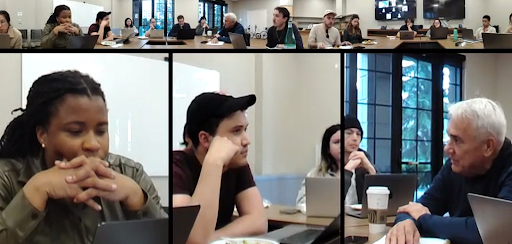The Graduate Student Council (GSC) elected an interim councilor and debated the merits of a proposed addendum to the Student Conduct Charter that will delineate the three tiers of disciplinary review, at its meeting last Tuesday.
The addendum, which was first discussed at a Undergraduate Senate (UGS) meeting last week, sets clear guidelines for the kinds of Honor Code violations that would fall under alternative resolution, mid-level review and high-level review. It also grants the Director of the Office of Community Standards (OCS) greater discretion to decide the review level of each violation.
Some GCS councilors expressed concerns that procedures on Honor Code violations were overly subject to subjective judgment on the most appropriate tier of review, even with the addendum.
“I am a little worried about how the ‘similar project’ provision can be construed extremely broadly depending on who is reading,” said Jacob Benford J.D. ’24, the GSC treasurer. The addendum provides that violations subject to “high-level review” include “plagiarism” or “falsifying data on a thesis, dissertation, or similar project.”
Jim David Biernat Sr. M.A. ’26, a member of the Board on Conduct Affairs (BCA), said these issues underscore why the OCS director should have increased decision-making authority on the levels of violations.
Kären Wigen, a faculty co-chair of the BCA, also said that more emphasis should be placed on resolving violations through communication and penalty grading if needed. “I think a lot of faculty would do that rather than get entangled in one of these procedures,” she said.
The new addendum specifies that first-time violators who take responsibility for wrongdoing will go through an alternative resolution, which does not impact a student’s permanent record and avoids further disciplinary action by the OCS. Wigen said this option would serve an important role in decreasing the caseload that the OCS handles.
The GSC also elected Cesar Lema, a third-year Ph.D. student in applied physics, to an interim seat on the council. Lema said he hoped to tackle transportation issues for graduate students, as well as diversity and inclusion efforts. He will hold the position until a permanent councilor is elected on April 25 and 26.
